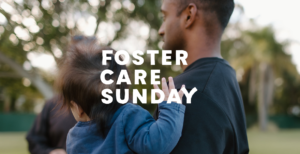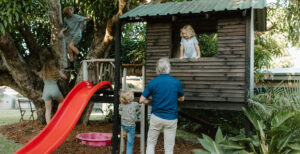Help your team understand behaviour through the lens of trauma — and create safe, inclusive spaces for every child.
Every child deserves a safe, nurturing place to belong.
Equip your team to understand and respond to children from “hard places” — with compassion, confidence, and connection.
The Homeward Project Trauma-Informed Training is a flexible, ready-to-run training package for Kids and Youth Ministry teams. Your team will gain essential insights and practical strategies to make your programs safer and more inclusive for all children and young people – especially kids with a difficult history or a story that involves trauma.
What your team will learn:
- Why past experiences impact a child’s brain and behaviour
- How to see behaviour through the lens of connection, not control
- How trauma affects trust — and how relationship heals
- Practical tools to create safe, supportive environments
- Real-world scenarios to apply the learning immediately
The training includes:
- 5-part video series
- Facilitator Guide (PDF) — no special expertise required
- Participant Booklet (PDF) with notes and tools
- Personalised support and briefing for your facilitator
You’ll have everything you need to confidently lead a powerful team training — even if you’re short on time.
How It Works:
- Request the training (click the button below)
- We’ll connect to briefly discuss the best approach for your church
- Get access to the videos and resources via our online platform
- Run the training at a time that suits your team
- Explore next steps with The Homeward Project
We want to make it easy for you to take the first step toward a more trauma-aware, inclusive ministry.
“I’m not an expert. Can I still lead this?”
Absolutely! Our videos and facilitator guide do the heavy lifting. Plus, we’ll personally brief and support you every step of the way.
“What if our team is too busy?”
The training is designed to be flexible and can be completed in as little as two hours. You can even split it over multiple sessions if needed.
Ready to equip your team?
Request Trauma-Informed Training today.
FAQs:
How much does the training cost?
The training is completely free. It’s part of The Homeward Project’s model to equip churches with resources and support for holistic Out-of-Home Care ministry. Find more at homewardproject.org.
How long does the training take?
You’ll need a minimum of two hours to complete the training with some discussion. Three hours is ideal to allow deeper reflection, discussion of scenarios, and planning for how to apply the learning in your ministry context.
What support is available?
You’ll receive full access to:
- A Facilitator Guide (PDF)
- A five-part video series
- A Participant Booklet (PDF)
- Plus, we’ll provide a thorough facilitator briefing and coaching support to help you feel confident leading the training.
How do we access the training?
Simply submit a request form on this page. We’ll follow up to confirm details, grant access to the materials, and support you in preparing to deliver the training.
Can someone facilitate the training for us?
A Homeward Project team member can deliver the training for you if needed. This will involve a training fee and coverage of costs like travel. Please contact us at hello@homewardproject.org to discuss options.
This training is part of The Homeward Project’s mission to equip churches for holistic, sustainable engagement in Out-of-Home Care. We’re excited to support your church community as you make a lasting difference in the lives of vulnerable children and young people.
Got questions? Email us anytime at hello@homewardproject.org








